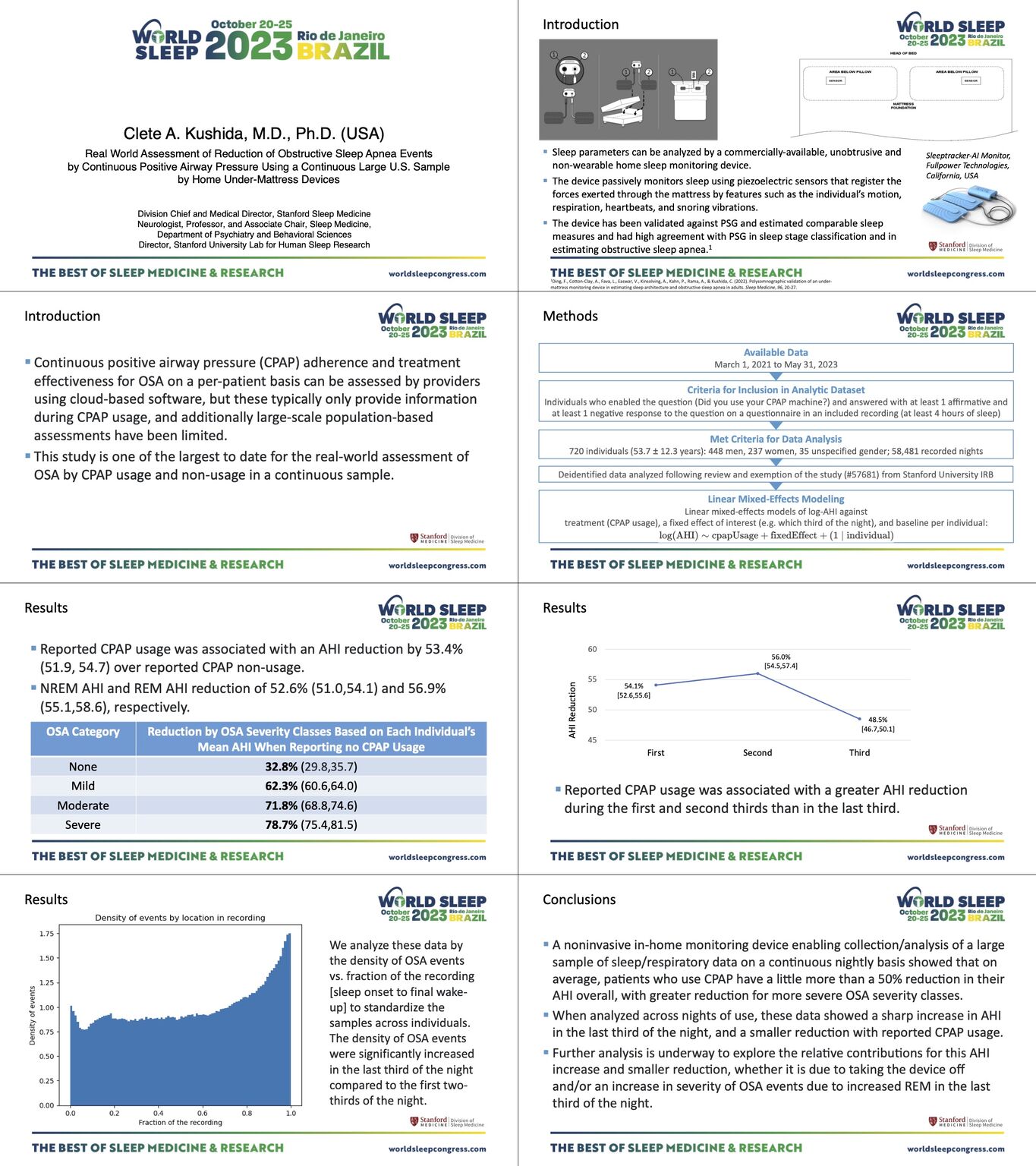Dr. Clete Kushida of Stanford presents a new extensive study, collaborating with Stanford Sleep Medicine and Fullpower-AI, at the World Sleep Congress 2023 in Rio de Janeiro.
The study shows the health benefits of consistent CPAP use by people with apnea in 720 female and male patients, using 58,000+ nights of sleep monitored in high fidelity with Sleeptracker-AI in their homes. Sleeptracker-AI can monitor sleep during CPAP usage, including when it is not used. The findings show significant decreases in breathing anomalies when CPAP is used.
Sleeptracker-AI uses AI to analyze sleep data anonymously collected to help identify different sleep stages, detect sleep disorders, and provide users with personalized sleep recommendations. It closely matches in-the-home, contactless, gold-standard PSG sleep analysis in real-world settings with machine and deep learning models and statistical inference techniques while carefully considering bias and other ethical issues. Its methodologies include deep, supervised, self-supervised, and reinforcement learning techniques. To continually generate training data, multiple clinical PSG sleep labs are in operation.
Whether one has Obstructive Sleep Apnea (OSA) or Central Sleep Apnea, the data shows that consistent use of a CPAP can make a difference in sleep quality and overall health.
Here’s why:
OSA: With OSA, the airway gets blocked during sleep, causing breathing interruptions and sleep disturbances. A CPAP machine delivers a continuous pressurized airflow, keeping the airway open and ensuring stable oxygenation (SpO2).
Central Apnea: For those dealing with Central Sleep Apnea (about 10% of the population diagnosed with apnea), it’s neurological, and the brain’s signal to breathe seems to be temporarily disrupted. A CPAP with adaptive settings can help stabilize breathing patterns.
Sleeptracker-AI studies also show the benefits of consistent CPAP use:
- Improved sleep quality: wake up feeling refreshed and energized.
- Increased alertness: better concentration and daytime alertness.
- Reduced health risks: Lowered risk of heart disease, stroke, and other sleep apnea-related health issues.
- Enhanced mood and mental outlook.
The data clearly shows that with apnea, the key is a consistent use of the CPAP.

Reference: Kushida, C., Cotton-Clay, A., Fava, L., Easwar, V., Kinsolving, A., & Kahn, P. (2023). 0502 Number of Nights to Achieve High Sensitivity/Specificity for Detecting OSA Using a Large US Sample by Home Under-Mattress Devices. Sleep.
https://academic.oup.com/sleep/article/46/Supplement_1/A222/7182096